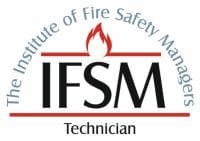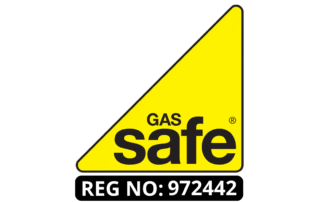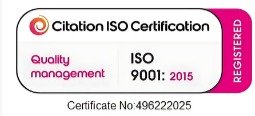
Landlord safety certification refers to the mandatory verification that rental properties comply with established health, safety, and regulatory standards. Regulatory bodies require landlords to obtain specific certificates, such as those for gas and electrical safety, to minimize hazards within residential environments. Failure to maintain valid certifications can result in legal consequences and increased liability. Understanding which certificates are required—and the procedures for obtaining them—forms the foundation for compliant and responsible property management.
Table of Contents
What Is Landlord Safety Certification?
Landlord safety certification is a formal process by which a rental property is assessed and verified to meet established health, safety, and regulatory standards. This certification typically involves an all-encompassing inspection conducted by qualified professionals or approved authorities.
The evaluation covers critical areas such as electrical systems, gas appliances, fire safety measures, structural integrity, and sanitation. Documentation and records are reviewed to confirm compliance with applicable local or national housing regulations.
Upon successful completion, a certificate is issued, attesting that the property adheres to the required standards. This process fosters a sense of security and trust within rental communities, ensuring all parties that minimum legal and safety criteria are consistently maintained.
Certification may require periodic renewal, reinforcing ongoing commitment to regulated best practices in property management.
Why Is Landlord Safety Certification Important?
A thorough safety certification serves as a critical mechanism for ensuring that rental properties comply with mandated health and safety standards. By adhering to these requirements, landlords not only protect tenants but also uphold regulatory obligations and maintain the integrity of their investments.
The importance of landlord safety certification is underscored by several key factors:
- Legal Compliance: Certification demonstrates adherence to statutory regulations, reducing the risk of legal penalties and enforcement actions against the landlord.
- Tenant Protection: Verifiable safety measures enhance tenant well-being, fostering trust and a sense of security within the rental community.
- Risk Management: Regular certification processes identify and mitigate hazards, decreasing potential liabilities and safeguarding property value.
Collectively, these elements reinforce a responsible and inclusive rental environment that benefits both landlords and tenants.
Types of Safety Certificates Landlords Must Have
Thorough property management requires adherence to a range of mandatory safety certification standards, each addressing specific risks within rental accommodations. Landlords are required to obtain an Electrical Installation Condition Report (EICR) to verify that all fixed electrical systems meet current regulatory requirements and remain safe for tenant use.
Additionally, an Energy Performance Certificate (EPC) is required to inform tenants of the property’s energy efficiency and environmental impact, supporting national sustainability objectives.
Fire safety compliance often mandates installation and regular testing of smoke alarms, carbon monoxide detectors, and, where applicable, fire doors. In furnished properties, Furniture and Furnishings (Fire Safety) Regulations certifications ensure supplied items are fire-resistant.
Adhering to these certification requirements fosters a compliant, secure rental environment and demonstrates a collective commitment to tenant safety and well-being.
Gas Safety Certificate (CP12)
The Gas Safety Certificate, commonly referred to as CP12, serves as a legally mandated document verifying that all gas appliances, fittings, and flues within a rental property have undergone inspection by a Gas Safe registered engineer. This certificate is vital for demonstrating compliance with the Gas Safety (Installation and Use) Regulations 1998.

It aims to protect tenants from risks associated with faulty gas installations, such as leaks and carbon monoxide poisoning. Landlords must ensure an annual inspection, maintaining both legal adherence and tenant safety. The CP12 must be retained for at least two years and provided to current and incoming tenants.
- Annual Requirement: Inspections must occur every 12 months.
- Qualified Personnel: Only Gas Safe registered engineers may conduct inspections.
- Documentation: Landlords must supply tenants with a valid CP12.
Electrical Installation Condition Report (EICR)
An Electrical Installation Condition Report (EICR) serves as a formal assessment of a property’s fixed electrical systems, evaluating their safety and compliance with current wiring regulations, specifically BS 7671. This report is essential for landlords aiming to provide a safe living environment and maintain regulatory adherence. Qualified electricians conduct visual inspections and testing to identify deficiencies, potential hazards, or areas requiring improvement. EICRs help landlords mitigate liability and foster tenant confidence. The table below outlines key features of the EICR process:
| Feature | Description |
|---|---|
| Assessor | Qualified electrician |
| Frequency | Every 5 years, or at tenancy change |
| Scope | Fixed wiring, sockets, consumer units |
| Compliance Standard | BS 7671 (IET Wiring Regulations) |
| Outcome | Satisfactory/Unsatisfactory with recommendations |
This systematic approach guarantees electrical safety and regulatory compliance.
Energy Performance Certificate (EPC)
A valid Energy Performance Certificate (EPC) quantifies a property’s energy efficiency and environmental impact, assigning ratings from A (most efficient) to G (least efficient) based on standardized assessments.
Landlords in the UK are legally required to provide an EPC to prospective tenants at the commencement of a tenancy.
The EPC remains valid for ten years, and properties must achieve a minimum rating of E to be lawfully let, barring certain exemptions.
Compliance with EPC regulations demonstrates a commitment to sustainable practices and tenant well-being.
- Assessment Scope: EPC surveys evaluate insulation, heating systems, windows, and construction materials.
- Legal Obligations: Non-compliance can result in financial penalties up to £5,000 per property.
- Tenant Transparency: EPCs supply clear information, promoting informed decision-making for prospective occupants.
Fire Safety Compliance
Alongside energy efficiency obligations, fire safety compliance stands as a fundamental requirement for landlords under UK legislation. The Regulatory Reform (Fire Safety) Order 2005 and the Housing Act 2004 mandate that rental properties must meet specific fire safety standards to protect occupants.
Key requirements include the installation of smoke alarms on each storey, carbon monoxide alarms in rooms with solid fuel appliances, and ensuring clear, accessible escape routes. Additionally, landlords must provide fire-safe furnishings and regularly inspect electrical installations.
Houses in Multiple Occupation (HMOs) are subject to even stricter regulations, such as fire doors and interconnected alarm systems. By adhering to these provisions, landlords foster trust and safety within their tenant communities, reinforcing a shared commitment to regulatory compliance and collective wellbeing.
How to Get Certified: Step-by-Step Process
Obtaining landlord safety certification in the UK involves a series of defined steps to guarantee full compliance with statutory requirements. Adhering to these procedures helps landlords demonstrate their commitment to tenant safety and legal obligations.

The certification process can be outlined as follows:
- Conduct Required Inspections: Arrange professional checks for gas safety, electrical safety, and fire safety equipment, ensuring each system meets regulatory standards.
- Rectify Identified Hazards: Address any deficiencies reported during inspections by commissioning qualified tradespeople to complete necessary remedial work.
- Obtain and Maintain Documentation: Secure all relevant safety certificates (e.g., Gas Safety Certificate, Electrical Installation Condition Report) and provide copies to tenants as legally required.
Following these steps fosters a compliant and trustworthy rental environment, aligning landlords with the broader community of responsible property owners.
Frequently Asked Questions
What Are the Penalties for Not Having Landlord Safety Certification?
Failure to obtain required certification may result in fines, prohibition from renting the property, or legal action by local authorities. Penalties are designed to guarantee compliance, promote community welfare, and maintain high safety standards for all residents.
Are Landlord Safety Certificates Transferable Between Properties?
The transferability of certificates between properties is generally not permitted under regulatory frameworks. Certificates are property-specific, reflecting unique safety assessments and compliance status. Authorities require separate certification for each property to guarantee ongoing legal compliance and tenant safety.
How Often Do Safety Certificates Need to Be Renewed?
The frequency of landlord safety certification renewal depends on specific regulations governing the relevant safety area. Most commonly, renewal intervals are prescribed by statutory requirements, such as annually or every five years, to guarantee ongoing compliance and collective resident well-being.
Can a Landlord Perform Safety Checks Themselves?
Whether an individual may personally conduct safety checks depends on the specific type of inspection and relevant statutory requirements. Many safety assessments, particularly for gas and electrical systems, require certification by qualified professionals to guarantee regulatory compliance and occupant confidence.
What Qualifications Should a Safety Inspector Possess?
The current question addresses key competency requirements. A safety inspector should possess accredited qualifications, relevant technical training, and up-to-date certifications, ensuring compliance with regulatory standards and fostering collective confidence in inspection outcomes for the community’s safety and well-being.
Conclusion
Landlord safety certification is a fundamental requirement for regulatory compliance and tenant protection. By securing essential certificates such as the Gas Safety Certificate, EICR, and EPC, landlords demonstrate due diligence in maintaining property standards. Adhering to certification protocols minimizes legal risks and guarantees a safe, habitable environment. Ongoing compliance with safety regulations not only protects tenants but also upholds the professional integrity of property management, reinforcing trust and accountability within the rental sector.








